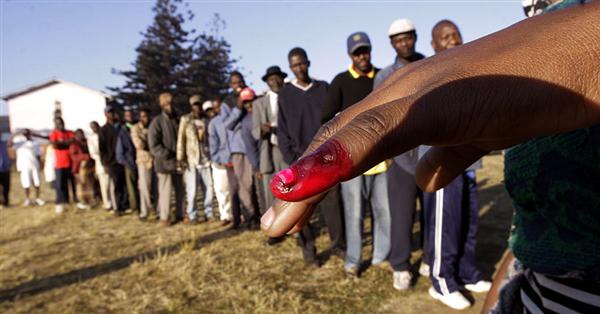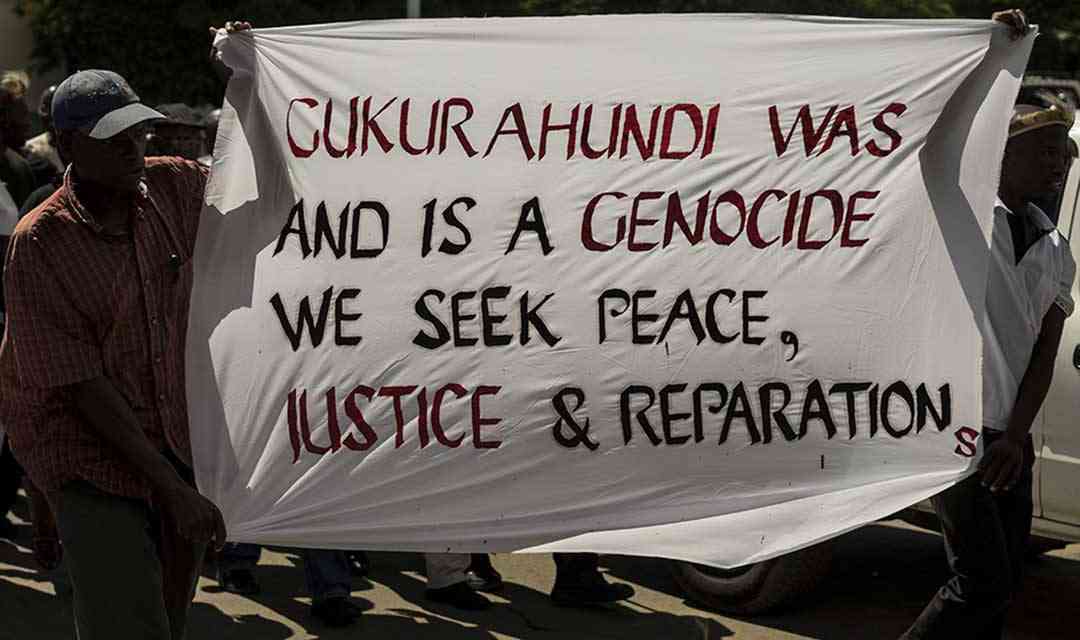
AUSTRALIA, the United States and the United Kingdom have called into question President Robert Mugabe’s landslide election victory claiming the polls were marred by massive irregularities. Reports by Nqobile Bhebhe/Sapa/ Silas Nkala/ Chris Chinaka for Reuters
The stance by the Western countries, backed by the European Union (EU) appears to be at odds with South Africa, the African Union (AU) and Sadc that declared the Wednesday polls free and fair.
Mugabe won 61% of the vote, beating Prime Minister Morgan Tsvangirai who got 34%, according to the Zimbabwe Electoral Commission (ZEC).
MDC leader Welshman Ncube got 2,68 % of the vote while Dumiso Dabengwa received 0,74%.
Tsvangirai dismissed the polls as “a fraudulent and a stolen election” and said he planned to mount a court challenge. Australian Foreign minister Bob Carr yesterday called for a fresh election in Zimbabwe.
“These appear to have disenfranchised large numbers of voters and raised doubts about the credibility of the election results,” he said in a statement.
“Given our doubts about the results, Australia calls for a rerun of the elections based on a verified and agreed voters’ roll.”
British Foreign Secretary William Hague commended the peaceful nature of the vote, but expressed “grave” concern over how it was conducted.
- Chamisa under fire over US$120K donation
- Mavhunga puts DeMbare into Chibuku quarterfinals
- Pension funds bet on Cabora Bassa oilfields
- Councils defy govt fire tender directive
Keep Reading
Hague’s statement on Friday was followed by that of US Secretary of State John Kerry who said the elections were flawed.
“Zimbabweans voted in their country’s first national elections this week since the violent and disputed polls in 2008,” Kerry said.
“These elections were an opportunity for Zimbabwe to move forward on a democratic path and provide a foundation for growth and prosperity,” said Kerry.
“The people of Zimbabwe should be commended for rejecting violence and showing their commitment to the democratic process.
“But make no mistake: In light of substantial electoral irregularities reported by domestic and regional observers, the United States does not believe that the results announced today (Saturday) represent a credible expression of the will of the Zimbabwean people,” Kerry said.
He urged Sadc and the African Union to address the concerns with the electoral process, as well as those raised by domestic monitoring groups.
The EU also said it was concerned about alleged irregularities and reports of incomplete participation, as well as the identified weaknesses in the electoral process and a lack of transparency.
AU obsevers, despite endorsing the polls raised “grave concerns around the voters’ roll, the number of ballots that were printed, the number of people who were turned away at voting stations and Zimbabwe’s biased media”.
Zuma congratulates Mugabe
JOHANNESBURG — President Jacob Zuma yesterday congratulated Robert Mugabe on his re-election.
Zuma described Wednesday’s elections as “harmonised” and called for peace in the neighbouring country, the International Relations department said in a statement.
“President Zuma urges all political parties in Zimbabwe to accept the outcome of the elections as election observers reported it to be an expression of the will of the people.
“(He) also encourages the people of Zimbabwe to seize this opportunity to collectively contribute towards building their country driven by a common desire for peace, stability and prosperity.”
Zuma said South Africa was ready to continue its relations with Zimbabwe.
Botswana doubts credibility of poll
BOTSWANA has refused to endorse Zimbabwe’s harmonised elections where President Robert Mugabe secured a seventh consecutive term in office.
The neighbouring country’s Foreign Affairs ministry, said Botswana had noted cases that fell short of best practice regarding the conduct of credible elections.
“In essence, the credibility of the elections is determined by the entire process before and after the holding of elections,” part of the statement reads.
“Nevertheless, the government has commended the people of Zimbabwe for the orderly manner in which they conducted themselves during election day and is optimistic that the situation in Zimbabwe will continue to be peaceful.”
Botswana’s vocal civil society organisations have also questioned the credibility of the polls.
Africa, West at odds
SHARPLY divergent views of Wednesday’s vote surfaced after Zimbabwe’s election officials declared a landslide win for President Robert Mugabe and his Zanu PF party, giving Africa’s oldest president five more years at the helm of a nation he has ruled for 33 years.
Western countries condemned the polls while African leaders have welcomed the 89-year-old leader’s victory.
The standoff raises some fears the Southern African nation risks repeating the turmoil that followed another contested vote in 2008.
Election violence then forced Zimbabwe’s neighbours to broker a shaky unity government between Zanu PF and the MDC formations.
Western observers were barred from Wednesday’s elections.
Monitors from the African Union and the Southern African Development Community (Sadc) who observed them made a point of stressing that they were peaceful, in contrast to the violence of 2008 polls and also endorsed them as broadly free.
In contrast, the United States and European governments, which have sanctions in place against Mugabe over past election-rigging, listed a litany of alleged flaws in the vote, from lack of availability of the voters’ roll to pro-Mugabe bias in the media and security services that skewed the election run-up.
Trevor Maisiri, senior analyst for Southern Africa of the International Crisis Group, said the priority of the African Union and its regional satellites like Sadc was avoiding conflict and civil strife.
This often took preference over technical perfection in electoral processes.
“I don’t think there is going to be any major social unrest. Some people are disappointed, but they have already gone back to their lives,” he said by telephone in Harare.
The MDC-T, facing political annihilation after its third failure to oust Mugabe through the ballot box, has said it could consider challenging Mugabe’s win through street protests.
But this could trigger a crackdown from pro-Mugabe security services, militias and supporters.
In the 2008 electoral violence, 200 MDC followers were killed in such a crackdown. In Harare, after the tense, rushed weeks of electioneering, many seemed anxious to get on with their daily lives.
“The elections have come and gone, and people have different opinions about the outcome, but we still need to pray for our welfare, for national peace,” one woman said as she went into a service at the main Anglican Cathedral in the city.
“Politics is important, but it’s not everything,” she added, declining to give her name.










